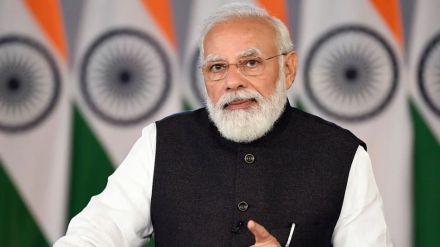It’s a welcome shift for Prime Minister Narendra Modi to articulate his belief in the diversity of the country and state that the new coalition government would be run by consensus. A true and unflinching belief in cooperative federalism ought to bulwark the promised path of conciliatory decision-making, faster economic growth, and inclusive progress. However, a certain amount of policy continuity is necessary for retaining the external world’s guarded confidence in India’s economy and growth potential. The PM has rightly stressed this and expressed the confidence that with his 10 years of experience in governing the country, “it will be easy for us to take the work forward immediately this time”. While rejoicing in the country’s current status as the fastest-growing major economy, one must also recognise that this has much to do with its relative under-developed condition, sheer size of its population, and the current phase of slow growth in world output.
The last two Modi governments, especially Modi 2.0, came under fire for an alleged attempt to belittle the state governments, via a subtle shift towards centralisation of fiscal resources, and a resort to legislating/policy-making in the concurrent space. At a certain point towards the end of the last government, a few states even sought judicial remedy for such overreach, a rarity by itself. The matter is now before the Supreme Court. The states’ allegations aren’t entirely unfounded. Mindful of the states’ resource crunch and the fact that they undertake over 60% of total government expenditure, the 14h Finance Commission (FY16-20) raised their share in the Centre’s divisible tax proceeds sharply from 32% to 42%, and this formula was largely followed by the 15th FC (FY21-26) too. However, the states’ share in the Centre’s gross tax receipts fell from 36.6% in FY19 to a little over 29% in FY21, and improved only marginally even in subsequent years.
As regards grants, during the first four of the 15th FC’s six-year award period, states have lost around `65,000 crore due to riders put in by the Centre. Further, under the redesigned Centrally Sponsored Schemes, the Centre has assumed more powers to influence the states’ spending patterns, including for items on the State List like public health. The 14th FC had abolished the special category status (SCS), which used to be enjoyed by 11 states owing to their various drawbacks and inherent resource paucity, as a means of fiscal prudence. Instead, it tweaked the formula for inter-se tax distribution among states to make it more equitable. However, given the political dynamics of the new government, it can’t afford to not pay heed to the clamour for SCS from Bihar and Andhra Pradesh. Any revival of such differentiated treatment, however, must not upset the ongoing fiscal consolidation.
A large part of the solution to the vexed issue of SCS could be found via the 16th FC. Steps to correct regional deprivations should not grow to an extent that they become disincentives for performance. The overarching policy ought to ensure that the states as a whole get their due share of fiscal resources, and reasonable autonomy on how to use them. At the core of the scuffle over resource sharing within the government, after all, is the wide gap between the resources and the development needs of the country. The tax-GDP ratio would need to be raised by at least 8 percentage points for government Budgets to be sizeable.
